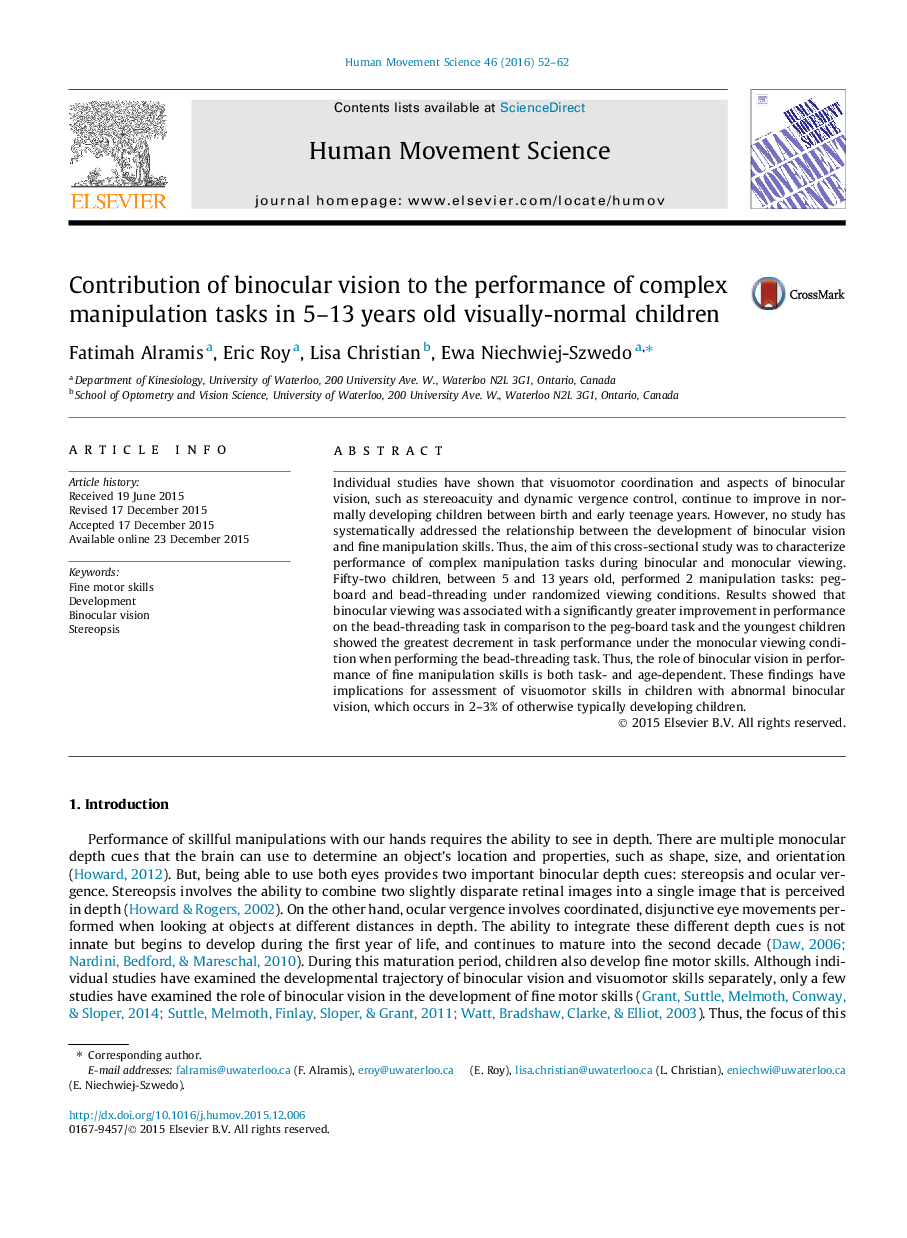| Article ID | Journal | Published Year | Pages | File Type |
|---|---|---|---|---|
| 928205 | Human Movement Science | 2016 | 11 Pages |
Individual studies have shown that visuomotor coordination and aspects of binocular vision, such as stereoacuity and dynamic vergence control, continue to improve in normally developing children between birth and early teenage years. However, no study has systematically addressed the relationship between the development of binocular vision and fine manipulation skills. Thus, the aim of this cross-sectional study was to characterize performance of complex manipulation tasks during binocular and monocular viewing. Fifty-two children, between 5 and 13 years old, performed 2 manipulation tasks: peg-board and bead-threading under randomized viewing conditions. Results showed that binocular viewing was associated with a significantly greater improvement in performance on the bead-threading task in comparison to the peg-board task and the youngest children showed the greatest decrement in task performance under the monocular viewing condition when performing the bead-threading task. Thus, the role of binocular vision in performance of fine manipulation skills is both task- and age-dependent. These findings have implications for assessment of visuomotor skills in children with abnormal binocular vision, which occurs in 2–3% of otherwise typically developing children.
